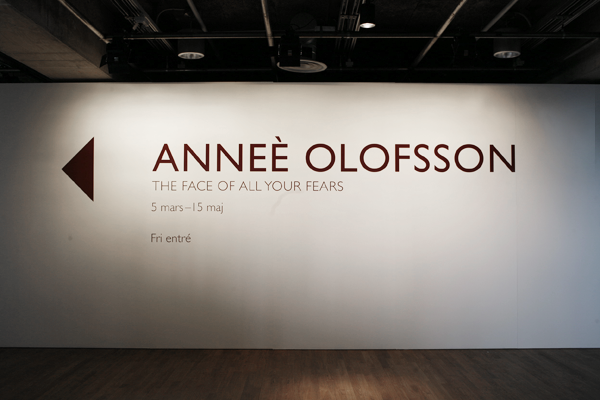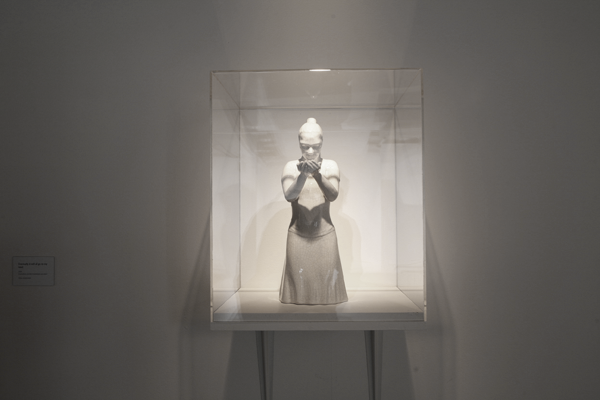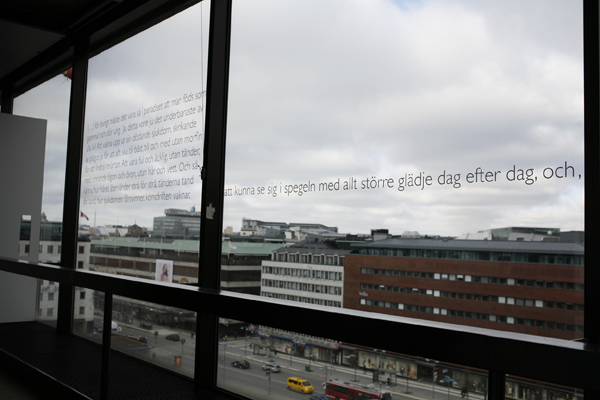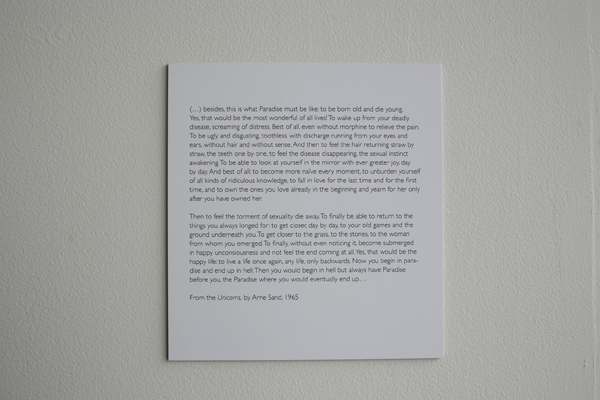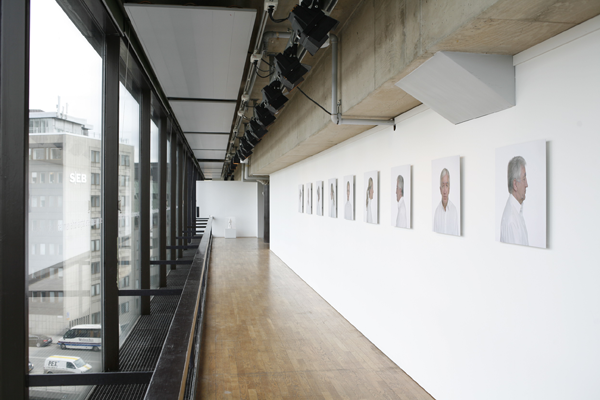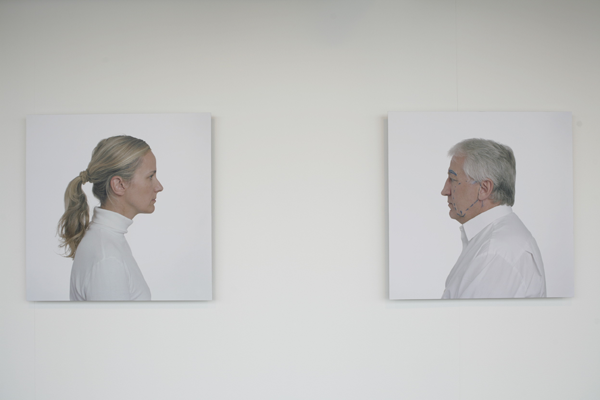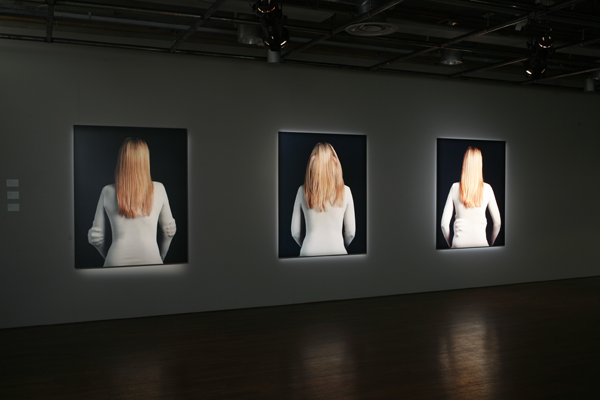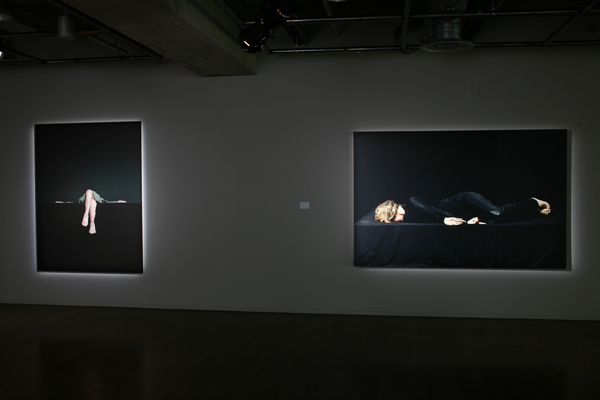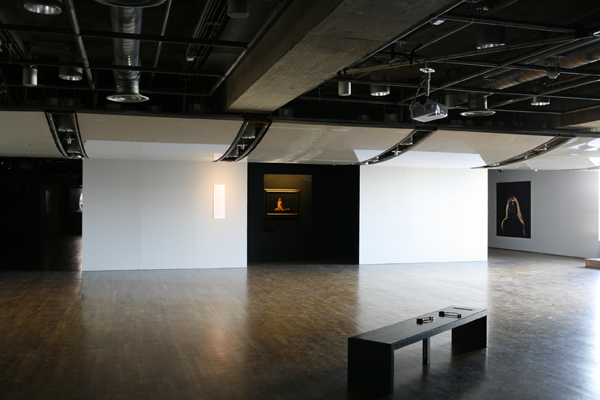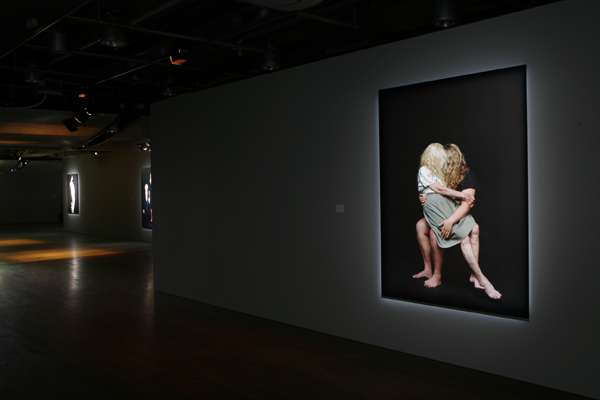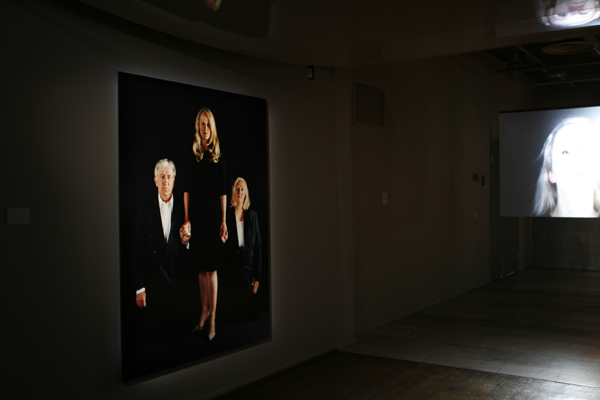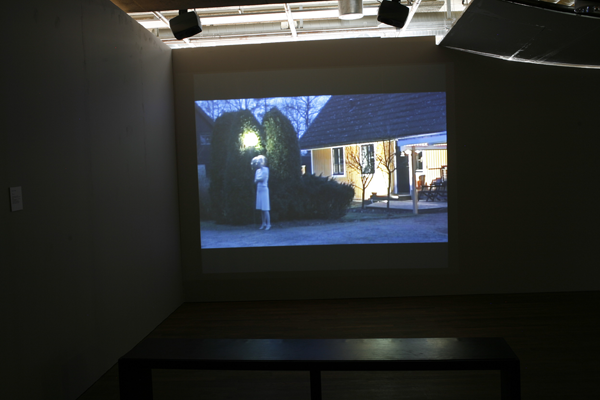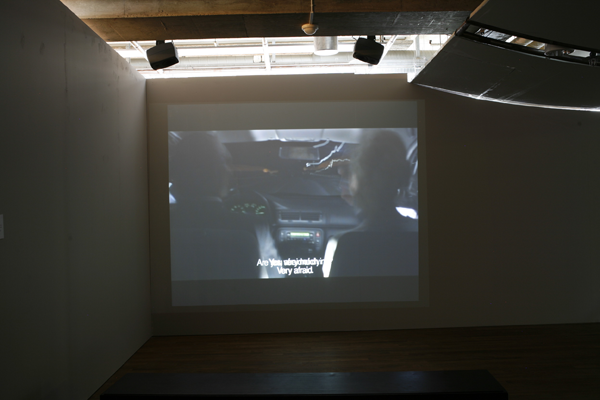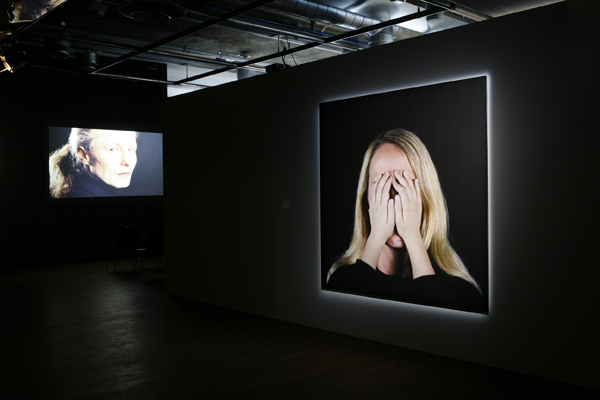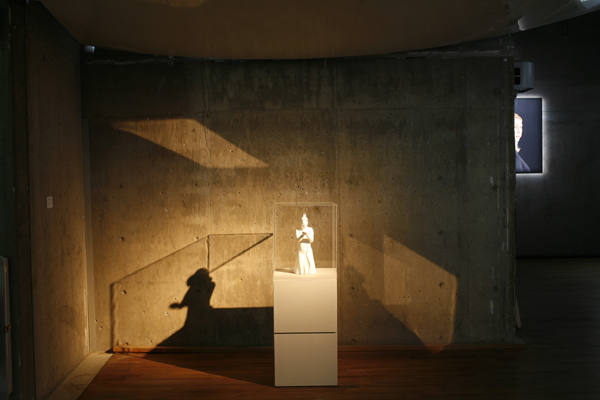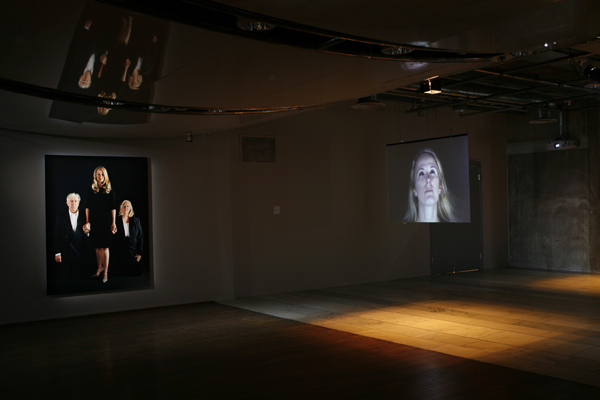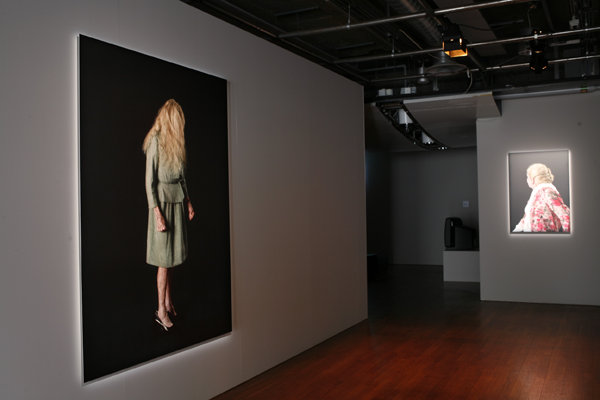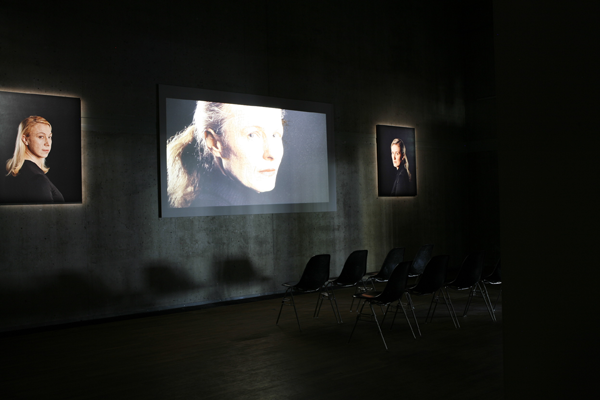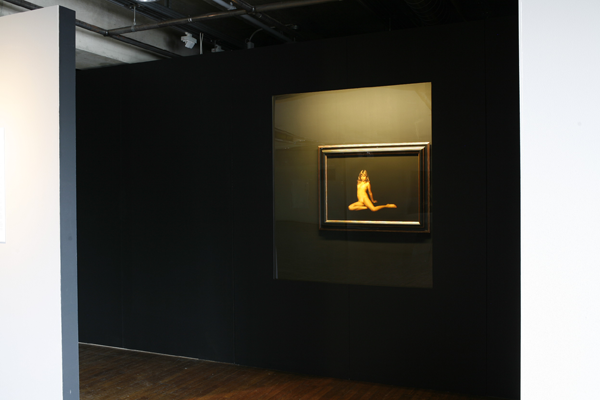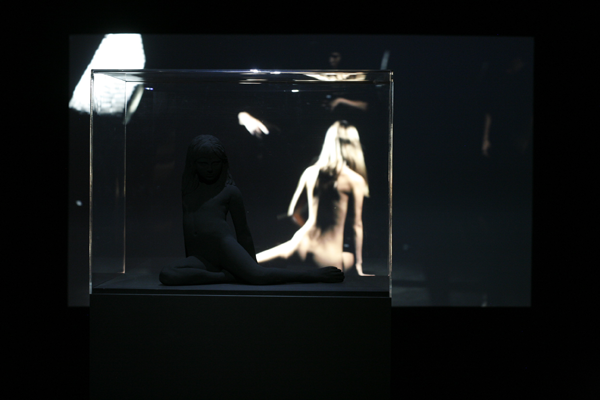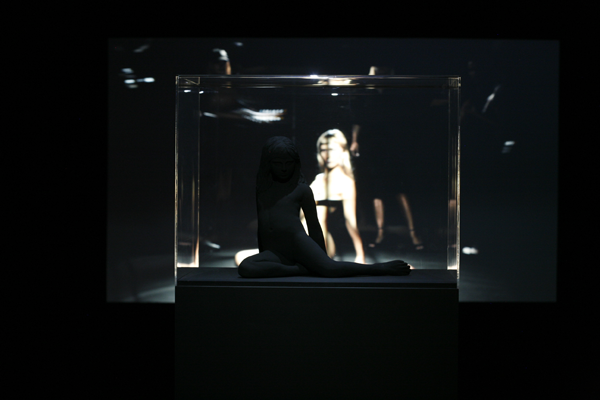
Stockholm, Sweden
2011
(curated by Pia Kristoffersson and Estelle af Malmborg)
The exhibition, Anneè Olofsson – The Face of all your Fears, circles around the questions that lie closest to Anneè Olofsson´s heart. In these rather autobiographical pieces – and as suggested by its title – she challenges her own obsessions, fears and traumas. It is Anneè Olofsson´s hitherto largest exhibition in Sweden and several pieces are presented for the first time.
Her works deals with complicated relationships, family ties and power structures. It is about childhood and growing up, aging and death, loss and memory. Time as a concept runs like a red thread throughout the exhibition. What we encounter first is an excerpt from the Swedish author Arne Sand´s book Enhörningarna(The Unicorns) from 1965. In this book Arne Sand works with the idea of living life backwards, in reverse, an idea that fascinates Anneè Olofsson and in many ways serves as a key to her art.
The series, Will you still love me tomorrow (2004) concerns aging and transience. The seemingly crackled photographs of different women recall Renaissance portraits and western pictorial tradition, and they allude to the aging of both the women and painting; traditionally both have been objects of retouching of various kinds. The film with the same title shows Anneè Olofsson selling a photograph of her former gallerist at an auction and reading a farewell letter after concluding a long collaboration. Another example of Anneè Olofsson´s ongoing dialogue with art history is Betty? (2011), which refers to a painting from 1988 by the German artist, Gerhard Richter.
Through the years Anneè Olofsson´s parents have had a prominent role in her photography and videos. In the intimate film, You need her and you want her golden hair she sees you but she won´t love you because she really doesn´t care (2000), Olofsson´s mother reads from a collection of love letters that Anneè has received over the years. The artist is picked up by her father in a car outside of her childhood home in the film Trick or Treat (2002). Wearing face masks, they ask each other extremely private and personal questions during the drive.
The centerpiece of the exhibition is two new pieces whose point of departure is a record cover for the German heavy metal group, Scorpions`s album “Virgin Killer” from 1976. The cover shows a young naked girl and it has incited strong reactions ever since the record was released over almost 40 years ago. Anneè Olofsson has long been fascinated by the image, which she now investigates further.
In the new video piece, Under a Serpent Sun (2011), Anneè Olofsson utilizes daily news with tragic overtones, which she also has also done in previous works. In the film she lies beside her father on a beach on a sunny summer day. A radio, which sits between them, is playing the tune “There´s always the sun” by The Stranglers. Now and then the music is interrupted by news of murder, disappearance and catastrophes, and the people on the beach are unwillingly drawn into these events.
